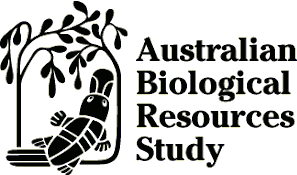Australian Tropical Rainforest Plants - Online edition
Passiflora suberosa L.
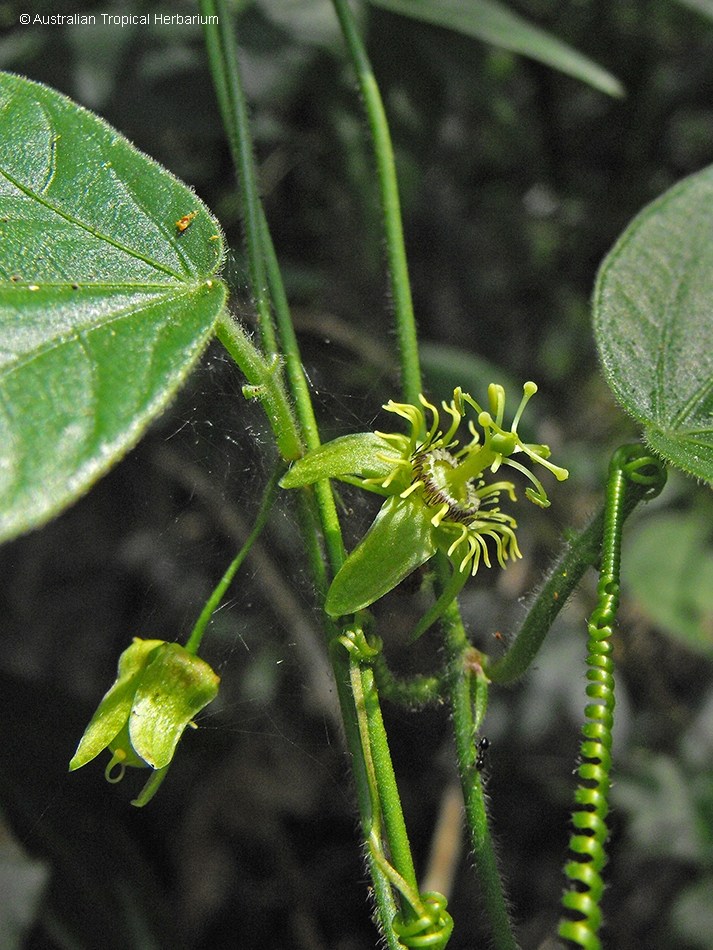

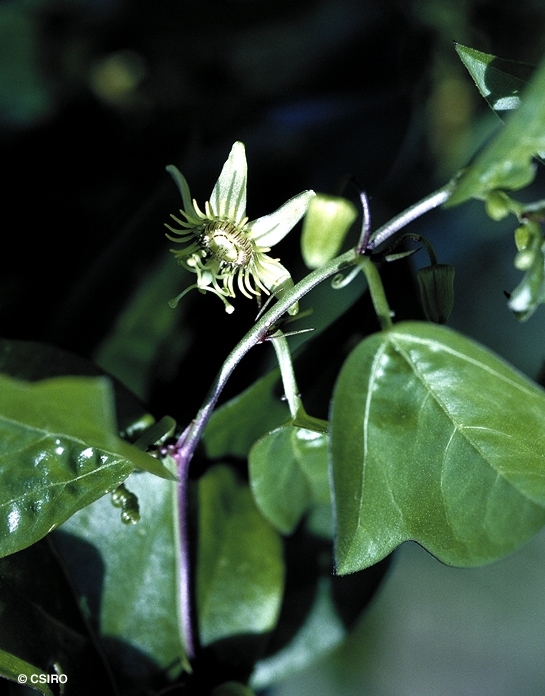
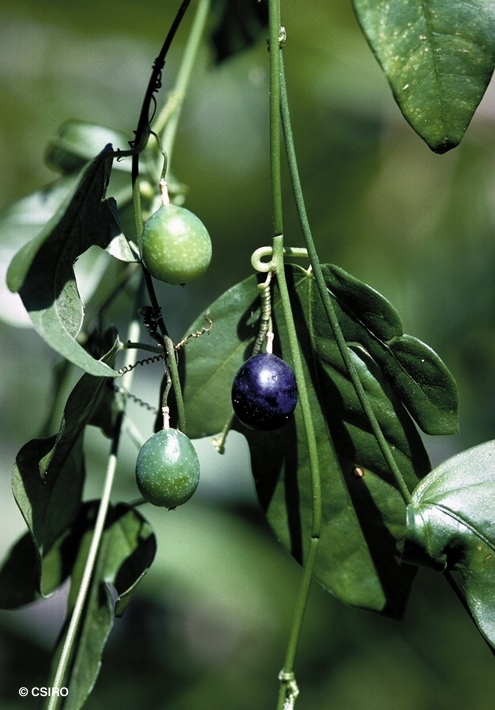
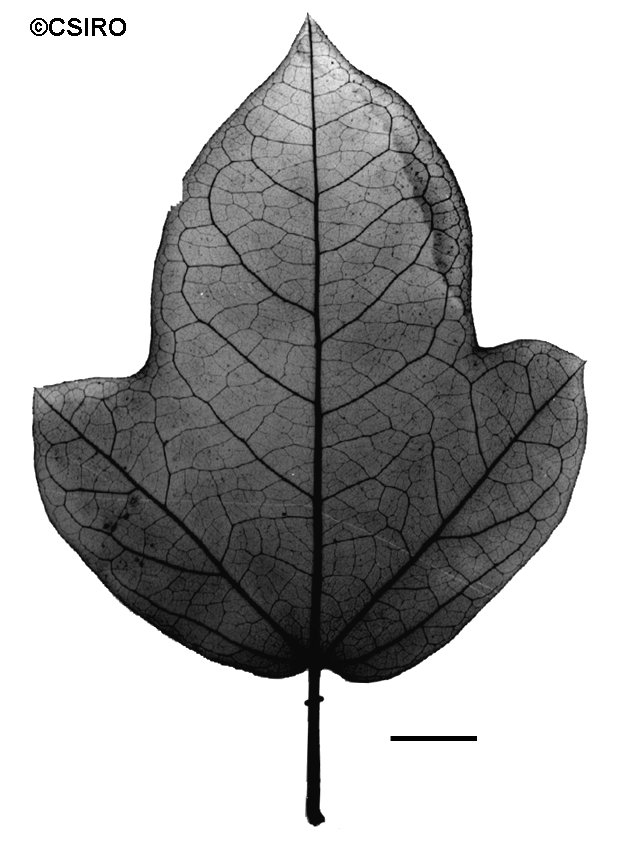
Linnaeus, C. von (1753) Species Plantarum 2: 958. Type: Dominica, probably Hispaniola; holo: ?.
Corky Passion Vine; Small Passion Flower; Cork Passionflower; Small Passion Fruit; Vine Corky Passion; Corky Passion Flower
A slender vine not exceeding a stem diameter of 2 cm.
Leaf blades lobed or smooth. Lobed blades about 4.5-8 x 3.5-6.5 cm, smooth blades about 2-4.2 x 1.2-2.5 cm. Petioles about 0.5-2.5 cm long with two globular glands attached to the sides of the petiole usually, but not always, along the upper half of the petiole. Stipules linear, about 6-7 mm long. Lateral veins 5 or 6 on each side of the midrib. Tendrils simple (unbranched), axillary.
Flowers about 18-20 mm diam., stalks about 13-15 mm long, articulated in the upper half. Calyx tube flat, disk-like at the apex, about 5-6 mm diam. Calyx lobes or perianth lobes about 8-9 mm long. True petals absent. Corona in four whorls decreasing in size towards the centre. Stamens attached to a gynophore about 2 mm long. Free staminal filaments about 2.5 mm long, anthers about 1.7 mm long. Styles three, free from one another, curved, each about 4 mm long. Stigmas clavate.
Fruits globular to ellipsoid, about 10-12 x 10-11 mm. Seeds numerous, each seed flattened, obovoid or tear-drop shaped in outline, about 3 x 2 mm. Testa pitted and corrugated. Aril or sarcotesta enveloping each seed. Embryo about 2 mm long, cotyledons +/- orbicular, about 0.9-1 mm long. Radicle about 1 x 0.3 mm.
Features not available.
An introduced species originally from tropical South America, now naturalised in NT, CYP, NEQ, CEQ and southwards as far as coastal central New South Wales. Altitudinal range in northern Australia from near sea level to 500 m. Grows in vine thicket, monsoon forest, disturbed lowland and upland rain forest and old settlement sites. Also naturalised in India, SE Asia, Malesia and the Pacific islands.
Experimental proof of toxicity of this species is not available but field evidence has indicated poisoning of cattle and ducks. Everist (1974).
A widespread weed that can smother vegetation, the seeds are spread by birds.




